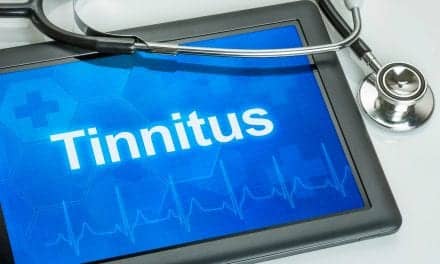St Louis — A double blind study that utilized magnetic stimulation to treat tinnitus did not show improvements compared to placebo, but further research is needed. The Washington University study was published in the March Archives of Otolaryngology-Head and Neck Surgery, one of the JAMA archive journals.
The study "Low-Frequency Repetitive Transcranial Magnetic Stimulation to the Temporoparietal Junction for Tinnitus” by Piccirillo, et al was designed to evaluate delivering magnetic pulses to the brain to treat patients with severe tinnitus.
The researchers used low-frequency repetitive transcranial magnetic stimulation (rTMS), as well as a sham version of the treatment.
The participants included 14 adults, aged 42 to 59 years, with subjective, unilateral or bilateral, nonpulsatile tinnitus of 6 months’ duration or longer and a score of 38 or greater on the Tinnitus Handicap Inventory (THI).
The researchers directed a daily rTMS treatment to the left temporoparietal junction for 2 weeks or a sham treatment and measured the change of the THI score between active and sham rTMS.
After 2 weeks, patients found little to no relief from either the real or sham treatment, with a median difference in THI change of only 1 point.
However, the researchers have not discounted magnetic therapy as a treatment for tinnitus. They conclude the negative findings may be due to the short duration of treatment, or not administering the rTMS stimulation to the correct area.
According to a Reuters interview, the researchers intend to do more studies with a longer 4-week interval, a larger patient population, and directing the rTMS on other potentially effective areas of the brain.
SOURCE: Archives of Otolaryngology-Head and Neck Surgery




